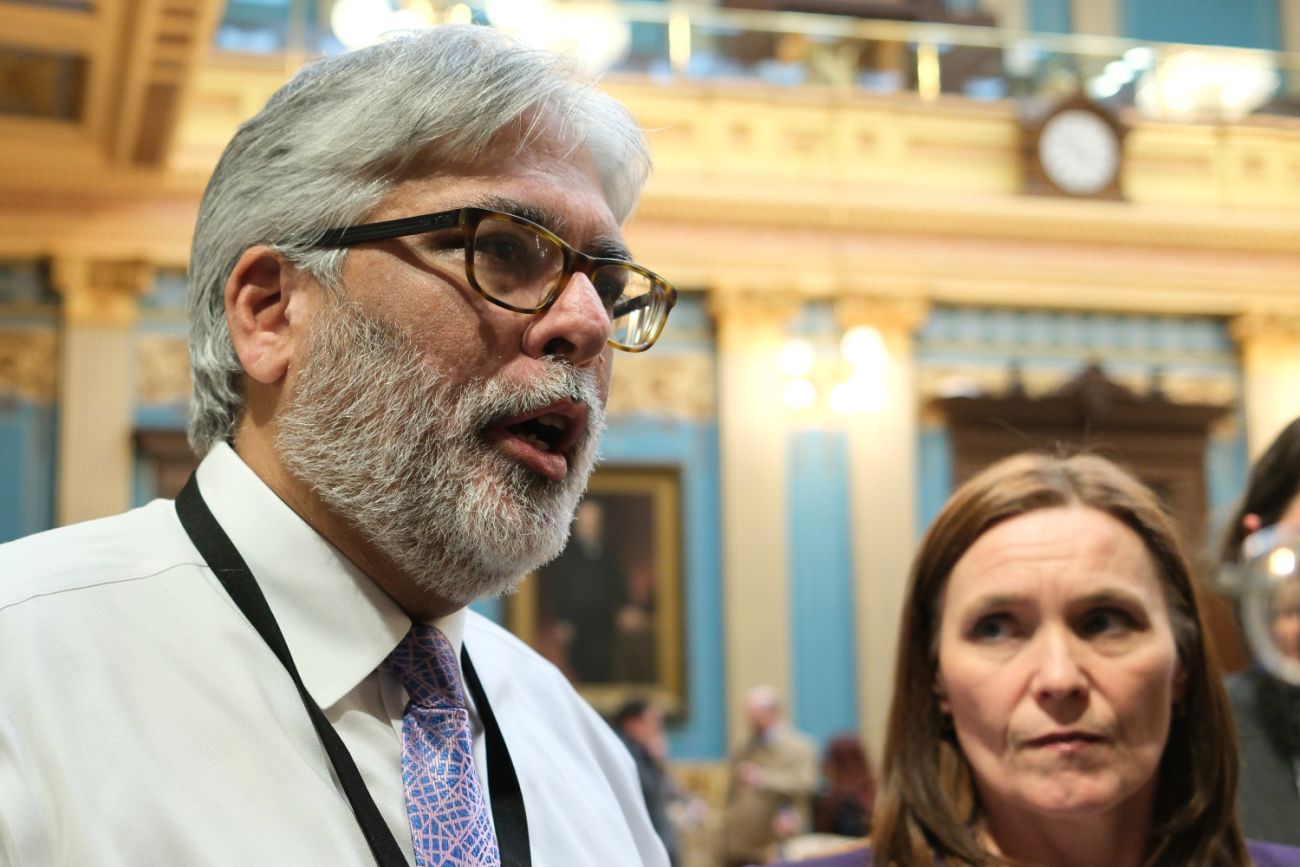Michigan lawmakers overhaul paid leave, wage laws in last-minute deal

- Michigan legislators pass changes to minimum wage and sick leave policies hours before they were set to go into effect
- Deal will delay paid sick leave mandate for small businesses until October, keep a lower wage guarantee for tipped workers
- Plan was approved in bipartisan votes despite opposition from some Democrats and labor groups
LANSING — The Michigan Legislature finalized an eleventh-hour deal to limit court-ordered wage increases and paid sick leave requirements late Thursday, the culmination of a seven-year fight over the policies in Michigan.
The bipartisan compromise, approved roughly an hour before court-ordered laws were set to take effect Friday, will add flexibility to pending paid sick leave rules and delay implementation for small businesses until October.
As part of the deal, rushed toward the governor’s desk for expected signature, the Democratic-led Senate also voted to immediately implement recently approved legislation to scale back a minimum wage increase for tipped workers.
Republicans said the deal was imperfect but would avert disaster for businesses across the state — "the mark of a good compromise," said Rep. Bill Schuette of Midland.
“It gets (workers) some paid sick leave, but it also allows businesses to know what the future is going to look like for them,” Schuette said after the final 81-29 vote in the House. “It's going to allow them to budget and be sustainable over the next few years.”
RELATED STORIES:
- With ‘emergency deadline’ near, Michigan House approves tipped wage deal
- Republicans walk out of Michigan House, demand action on tipped wage and sick leave laws
- Whitmer's $3B plan to fix Michigan roads calls for more corporate, marijuana taxes
The deal divided legislative Democrats, some of whom opposed leadership decisions to change the paid sick leave and minimum wage increases that were backed by organized labor.
The legislation “does not go far enough to deliver the relief that Michiganders deserve and need,” said Rep. Tonya Myers Phillips, D-Detroit.
But Sen. Sam Singh, D-East Lansing, said Michigan’s paid sick leave rules will still be “the strongest in the entire country” despite the amendments.
What's in the deal?
The paid sick leave compromise does not include a small business exemption sought by Republicans but strenuously opposed by unions. An earlier House plan would have exempted firms with fewer than 50 employees — about 260,000 companies with 1.2 million workers.
Under the final deal, small businesses with fewer than 10 workers will have to provide five days paid leave, and larger firms will have to provide nine days.
But businesses with fewer than 10 employees will not have to offer additional unpaid leave, as ordered by the Michigan Supreme Court, and won’t have to implement the new sick leave policy until Oct. 1.
“We were working hard to make sure that we could get something that was still preserving the original intent of the initiative,” Senate Majority Leader Winnie Brinks, D-Grand Rapids, said after the 26-10 Senate vote.
The deal will also:
- Allow businesses to offer a year’s worth of sick time immediately, instead of tracking employee accrual, if they prefer
- Make it easier for businesses to punish workers who miss multiple days without explanation or excuse
- Make exemptions for minor workers, unpaid interns and part-time workers
- Honor existing labor contracts or collective bargaining agreements that include paid sick leave at a rate equal to or greater than the law
“This is not a policy that either side is really happy about, and that’s some of what compromise is,” House Speaker Matt Hall said at a press conference Thursday afternoon ahead of the final deal.
The late-night agreement on sick leave came a day after the Republican-led House approved legislation to retain a “tipped credit” for restaurant workers. The Democratic-led Senate had not voted to let the policy take effect immediately until Thursday night.
Under the deal, Michigan’s $10.56 minimum wage will rise to $15 by 2027, but the state will not phase out its subminimum wage for tipped workers. Instead, that rate will rise to 50% of the standard minimum wage by 2031.
The Senate spent nearly 12 hours hammering out details of the paid sick leave compromise Thursday. In the public gallery above the chamber floor, leaders of Michigan business groups and labor unions sat on opposite sides, speaking with lawmakers who ventured up as negotiations progressed.
A long-running fight
The late-night votes capped months of speculation over whether lawmakers would adjust court-ordered laws that unions celebrated but business groups argued could spell doom for various industries, including restaurants.
The rules were first proposed by activists in a 2018 petition drive, only to have a Republican-led legislature adopt and immediately water down the proposal in an end-around to keep it off the ballot.
Last July, after a lengthy legal battle, the Michigan Supreme Court ruled the Legislature’s tactic was unconstitutional. The justices wrote that legislators could amend an adopted initiative – but not in the same two-year session.
House Republicans had pushed for changes to the policies during last year’s chaotic lame-duck session, when they eventually walked out of the chamber in protest over the then-Democratic majority’s refusal to engage on the issue.
The compromise deal was the result of months of arguments between groups representing labor unions, restaurants and tipped workers.
Some progressives and pro-worker groups had wanted the wage and sick leave changes to go into effect undisturbed, while business groups argued they could force cost increases or closures. Rival interest groups, each claiming to represent restaurant workers, made conflicting arguments about elimination of the lower minimum wage for tipped workers.
Despite the deal in Lansing, the fight may not be over.
One Fair Wage, the group that initially drafted the wage and sick leave petitions, said Thursday they are laying the groundwork for a referendum petition, which, if successful, would let voters choose whether to repeal the Legislature’s wage changes in the 2026 election.
“We’re mobilizing to ensure voters — not politicians — have the ultimate say in whether these protections are upheld,” said Saru Jayaraman, One Fair Wage president.
Save MI Tips, an advocacy group supporting the wage deal, noted One Fair Wage has made similar threats before and said the latest should be met with “great big, huge, massive, gigantic, super-duper skepticism.”
See what new members are saying about why they donated to Bridge Michigan:
- “In order for this information to be accurate and unbiased it must be underwritten by its readers, not by special interests.” - Larry S.
- “Not many other media sources report on the topics Bridge does.” - Susan B.
- “Your journalism is outstanding and rare these days.” - Mark S.
If you want to ensure the future of nonpartisan, nonprofit Michigan journalism, please become a member today. You, too, will be asked why you donated and maybe we'll feature your quote next time!




